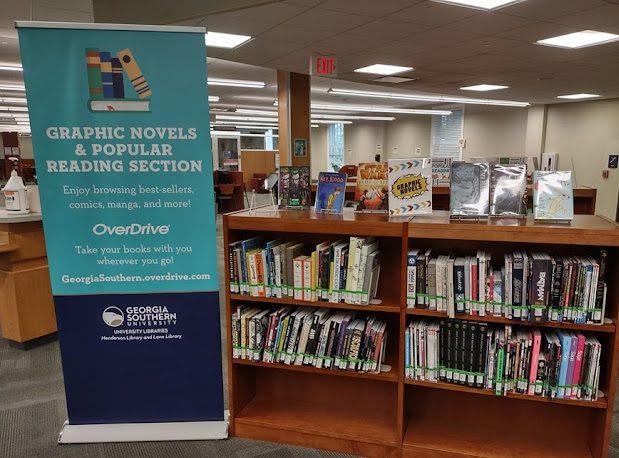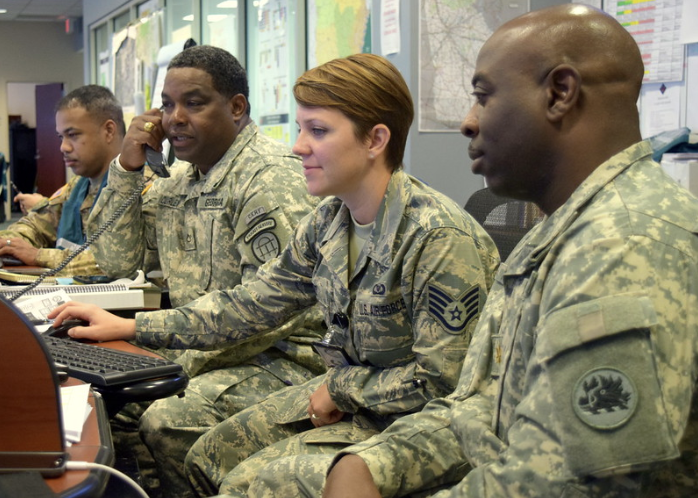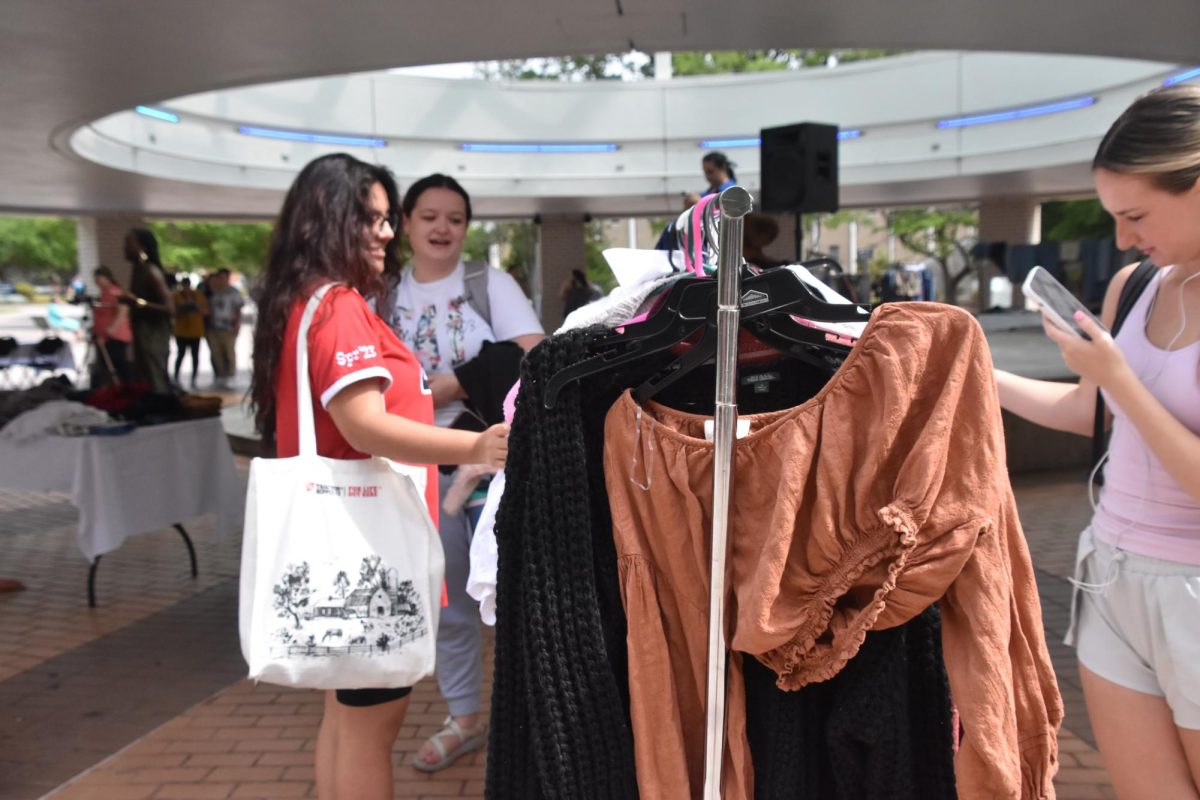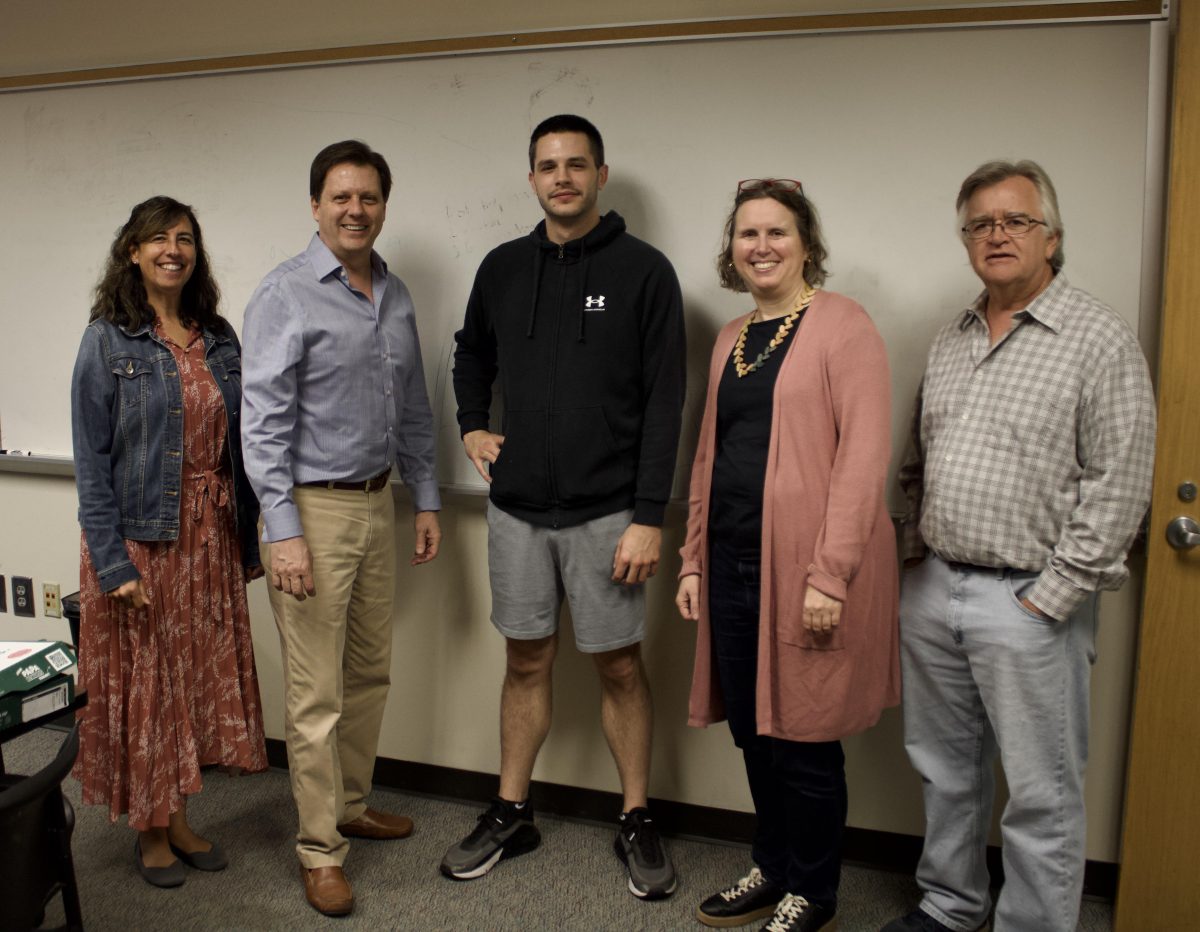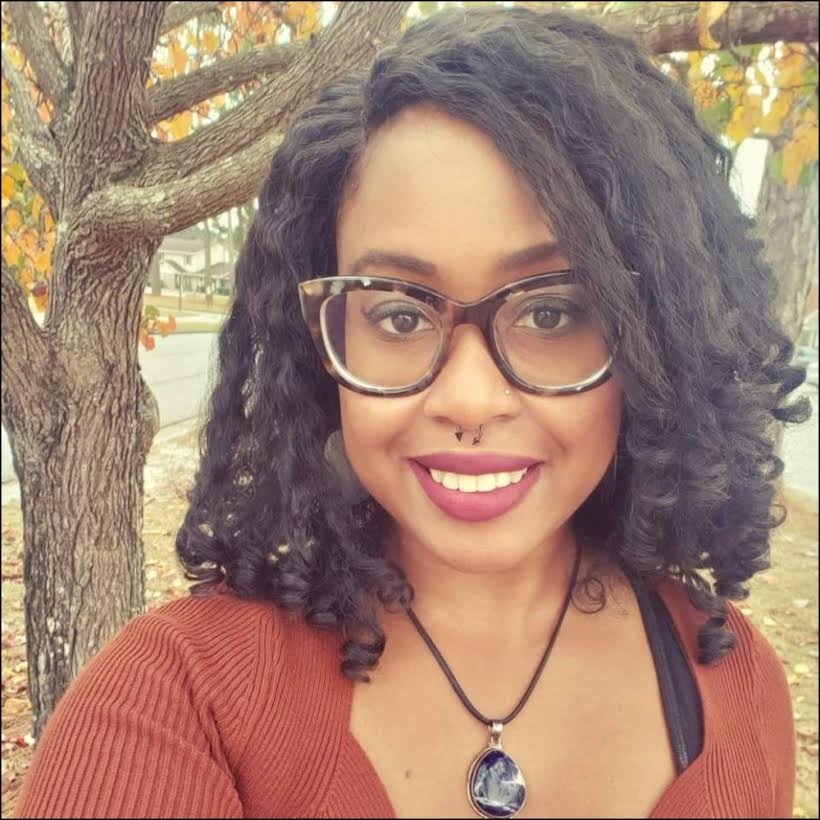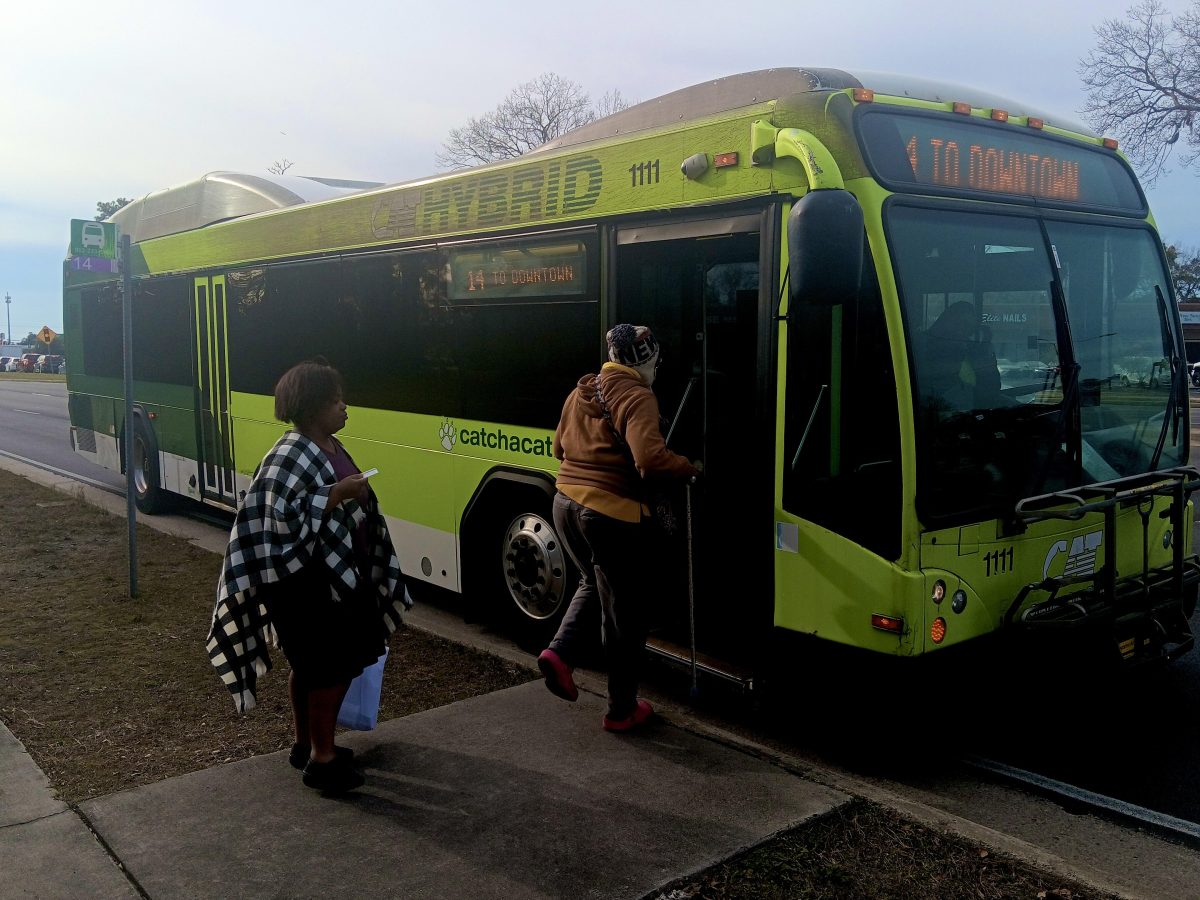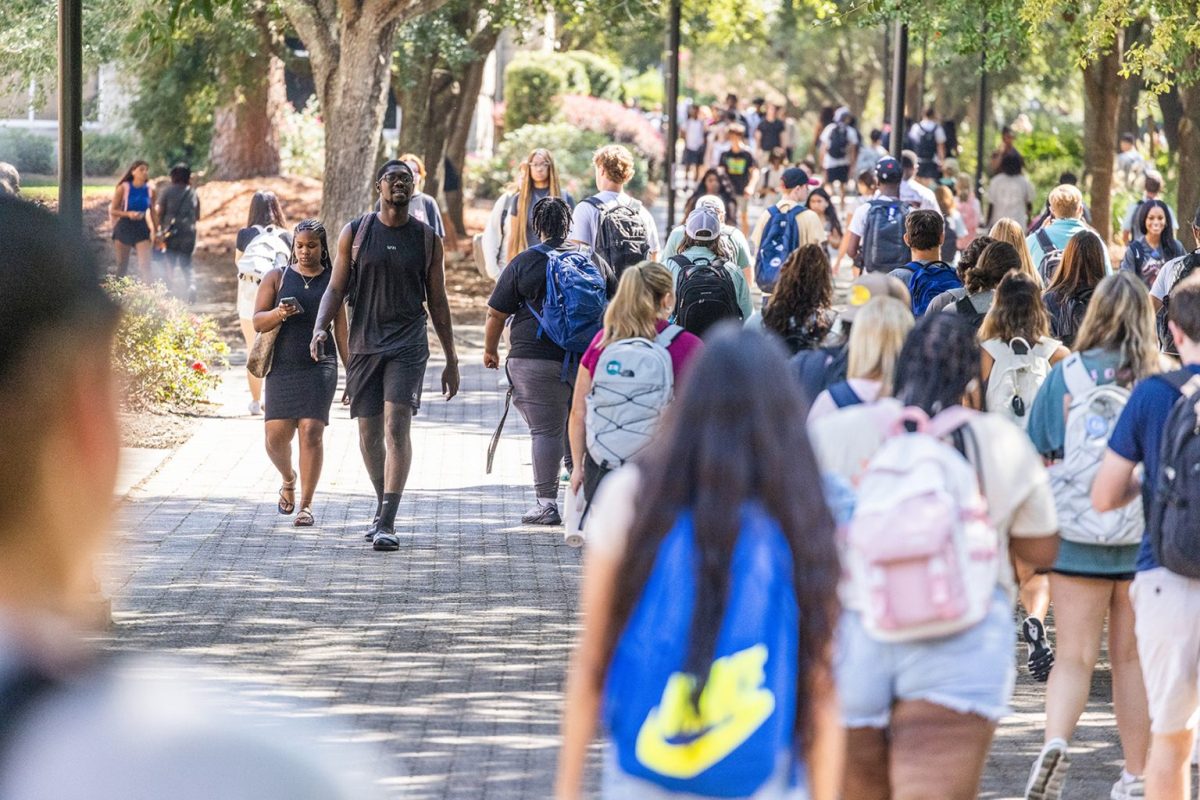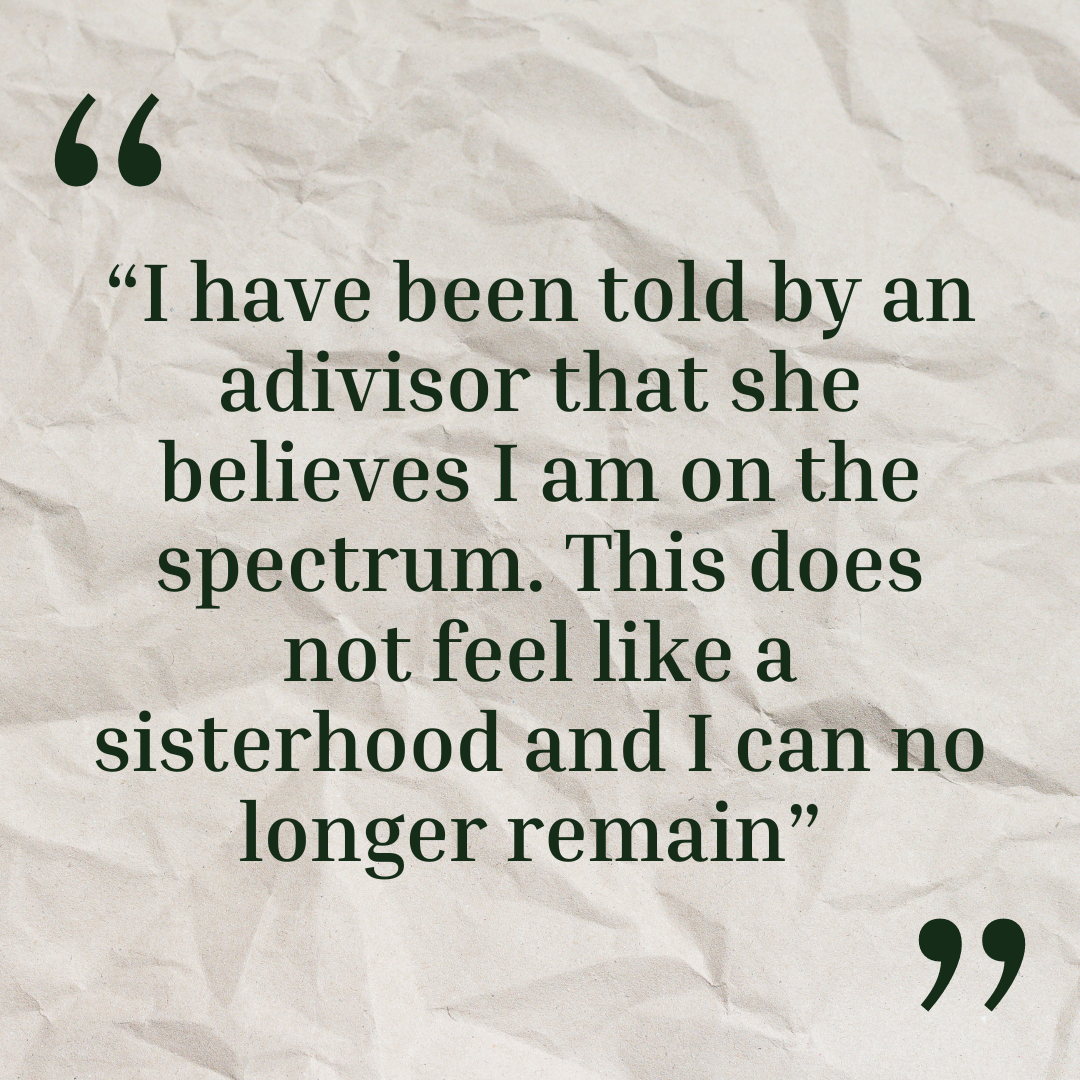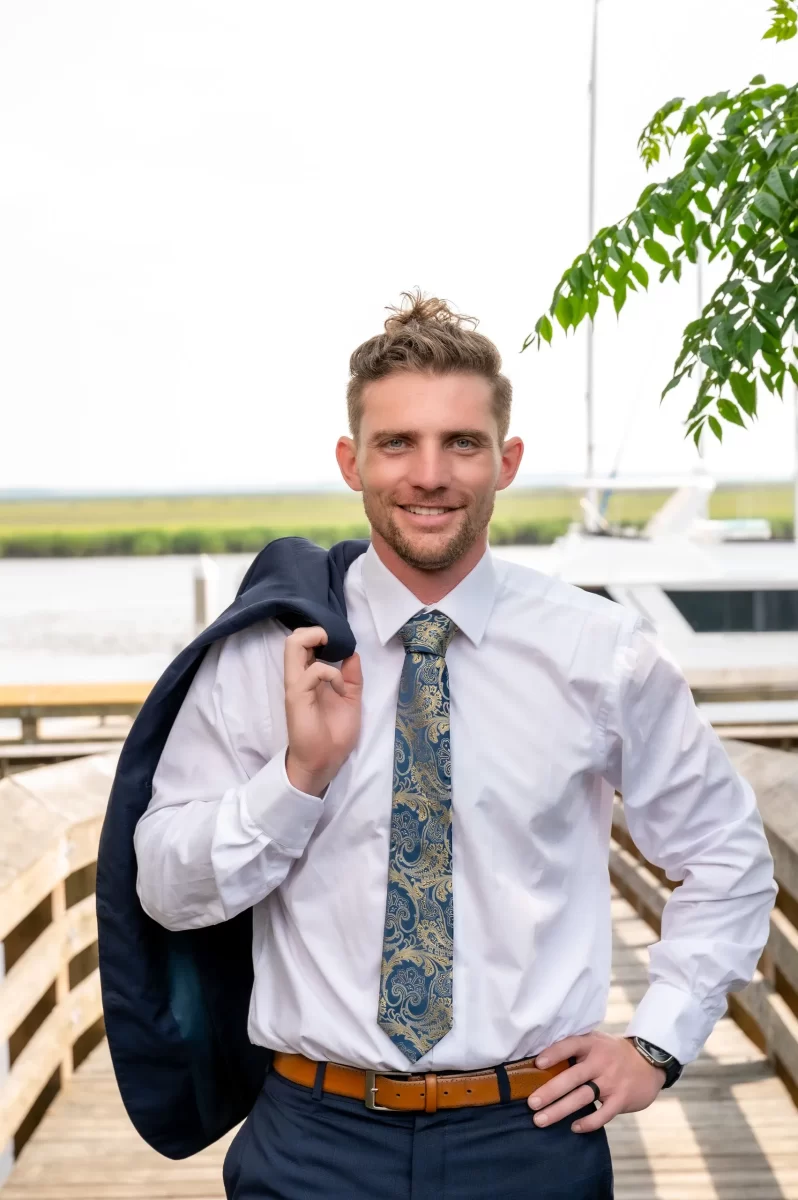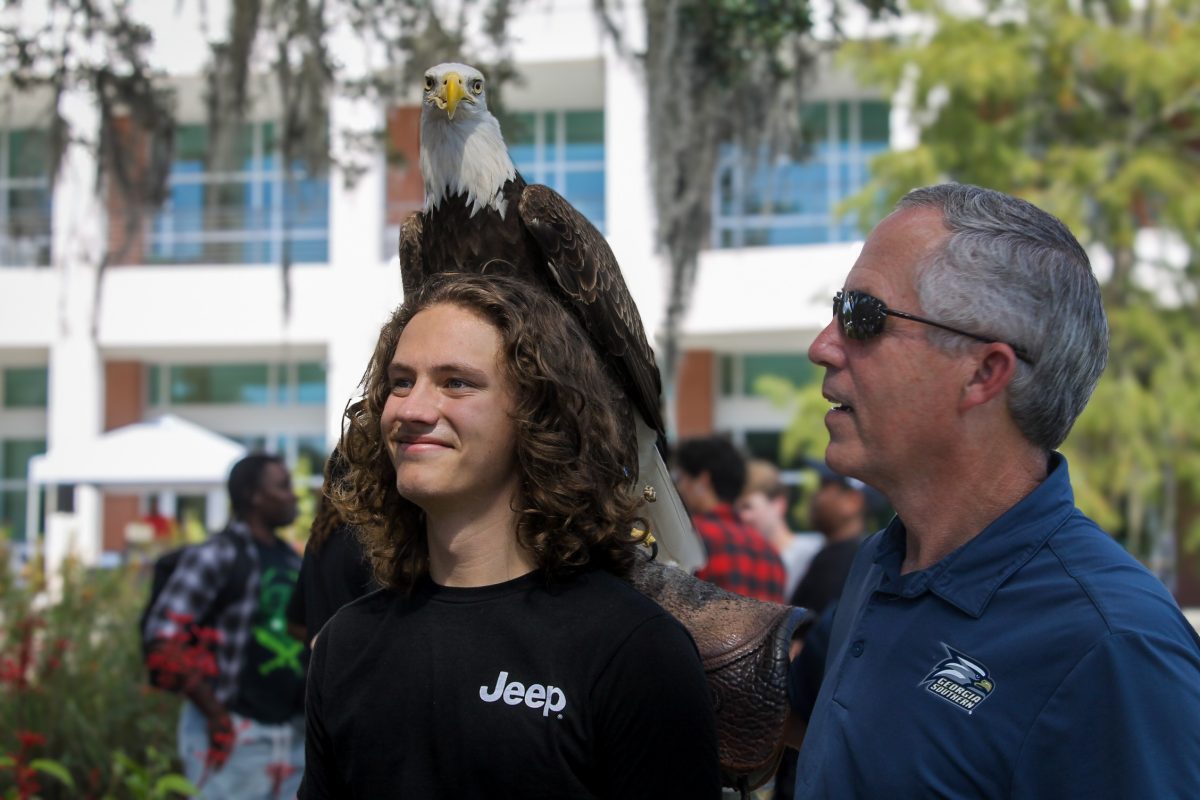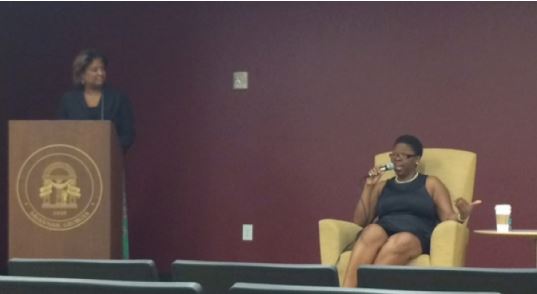
The offices of the president and Provost have conducted a series of discussion panels to address a broad range of issues that affect the campus community. On March 23, “Race, Part 1,” the latest discussion of the series, touched on issues of race relations in the past and present of the United States.
It also explained ways that Armstrong’s campus community can begin the journey of forgiveness and racial tolerance. Dr. Consuela Ward was the guest facilitator: a faculty member at Kennesaw State University and a veteran diversity trainer who unapologetically discussed issues concerning power and privilege, discrimination, and colorism relating to national and global racial issues.
“Power is really important, and unless we understand the difference between power and privilege, and the context, we’ll always only look at the single story. Power means you have the ability to influence others socially, politically and economically, through access of housing, access of education and clean water. In that case, what have black people done to white people to systemically disadvantage them,” she asked.
There were several questions and comments from students, faculty and staff regarding their own personal experiences with racial tensions, and their questions for Dr. Ward on ways to counteract unprogressive tendencies within Armstrong’s campus community and on a broader spectrum.
Dr. Ward emphasized the power of students to make a difference in their own campus communities, by realizing that they do in fact have the power to create change. “Students have more power er on a college campus than anybody. When you think about the Civil Rights Movement, what age groups in the 60s and 70s moved that along? It was you, and this is your time now.
“If you actually do what I told you to do without any context, you’re not thinking critically. That is the difference between living in a world where rules are made for you… and living in a world where you create your own rules. So from this day forward, ask the question why, dig deeper, [and] never stop at the first story or the single story,” Dr. Ward said.
Chelsea Sawyer, a sophomore Cell and Molecular Biology major, was pleased to see the diversity of the crowd and liked the idea of anonymous text-in questions.
“I enjoyed seeing the diversity in the room. Like the speaker said, uncomfortable conversations need to take place more often for real growth and healing to transpire. The audience participation was good and the idea of having people who didn’t want to talk text their concerns was awesome,” Sawyer said.
Dr. Ward closed the discussion with the idea of unity promoting growth in terms of race relations within the campus community. “Solidarity is very important; there are strength in numbers. When you have a collective, you can do more,” Ward said. The “Race, Part 2” discussion will be held in April beginning in the Ogeechee Theater for those who may have missed the first meeting or want to continue the conversation.


